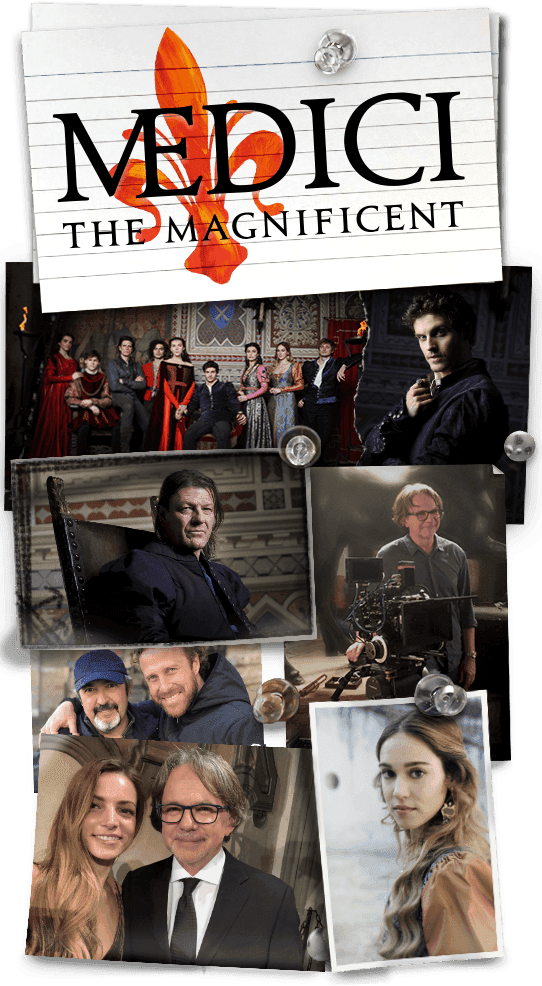The first season of a television series is by definition the most difficult. That’s when you’re figuring out who your characters are, and the narrative challenges of a given world. So after having done Medici: Masters of Florence, how difficult could it be to get Medici: The Magnificent underway?
Very difficult, as it turns out. That’s because The Magnificent jumped forward in time to the story of Cosimo de Medici’s grandson, Lorenzo. This was still a series about the Medici family, but all the characters were different. And so, as it turned out, was just about everything else.
The development process became long and painful, but in the end it was a thematic thread to the first season that pointed the way forward: if Cosimo felt compelled sometimes to do bad in order to do good, his privileged grandson Lorenzo would attempt something even bolder and more dangerous – to do good and be good.
Educated, idealistic youth clashing against the entrenched forces of an older generation felt remarkably contemporary and relevant. And we knew the ending of the season – the infamous Pazzi Conspiracy – would give Lorenzo’s idealism a deeply tragic cast.
What we didn’t expect was the power that journey would assume in the wake of the Pazzi conspiracy. For the most part our cast played themselves as slightly younger than they really were in the first season. But now, they had to play themselves older and, remarkably, they truly seemed to be. The emotional weight of the previous season seemed to weigh on their shoulders. As the dimensions of the tragedy grew, so did the depths of their performances. By the time we screened the final two episodes of the series for our broadcaster, there was hardly a dry eye in the room.
Medici: The Magnificent made a potent statement about the limits of idealism and the difficulty of doing the right thing in a fallen world. It’s about what’s lost, what remains, and what ultimately redeems us all.
Cast:
- Daniel Sharman
- Sean Bean
- Bradley James
- Synnøve Karlsen
- Alessandra Mastronardi
- Sarah Parish
- Matteo Martari
- Sebastian de Souza
- Charlie Vickers
- Jacob Fortune-Lloyd
- Julian Sands
- Aurora Ruffino
- Matilda Lutz
- Filippo Nigro
- Annabel Scholey
- Michele Balducci
- Jack Bannon
- Raoul Bova


